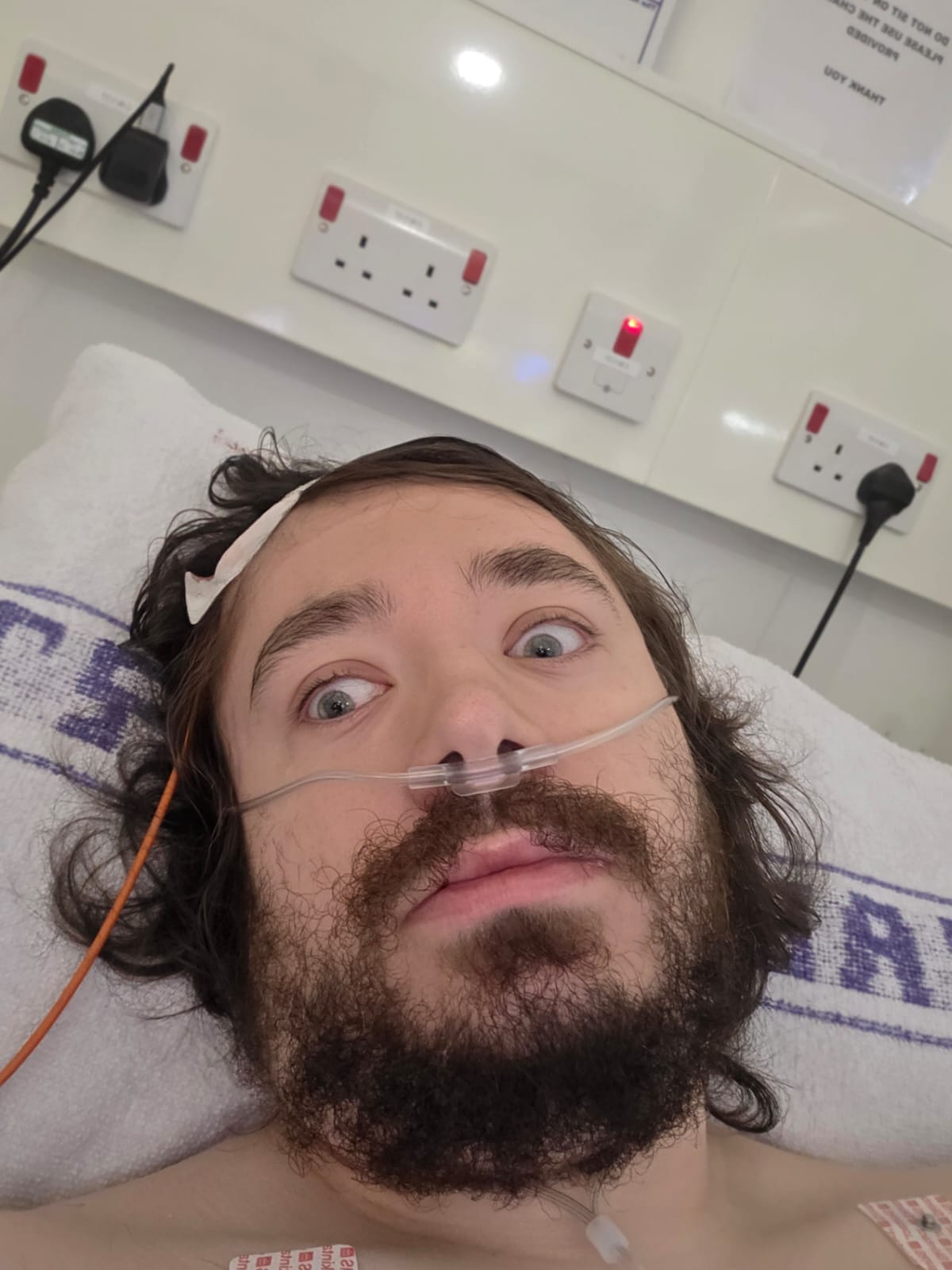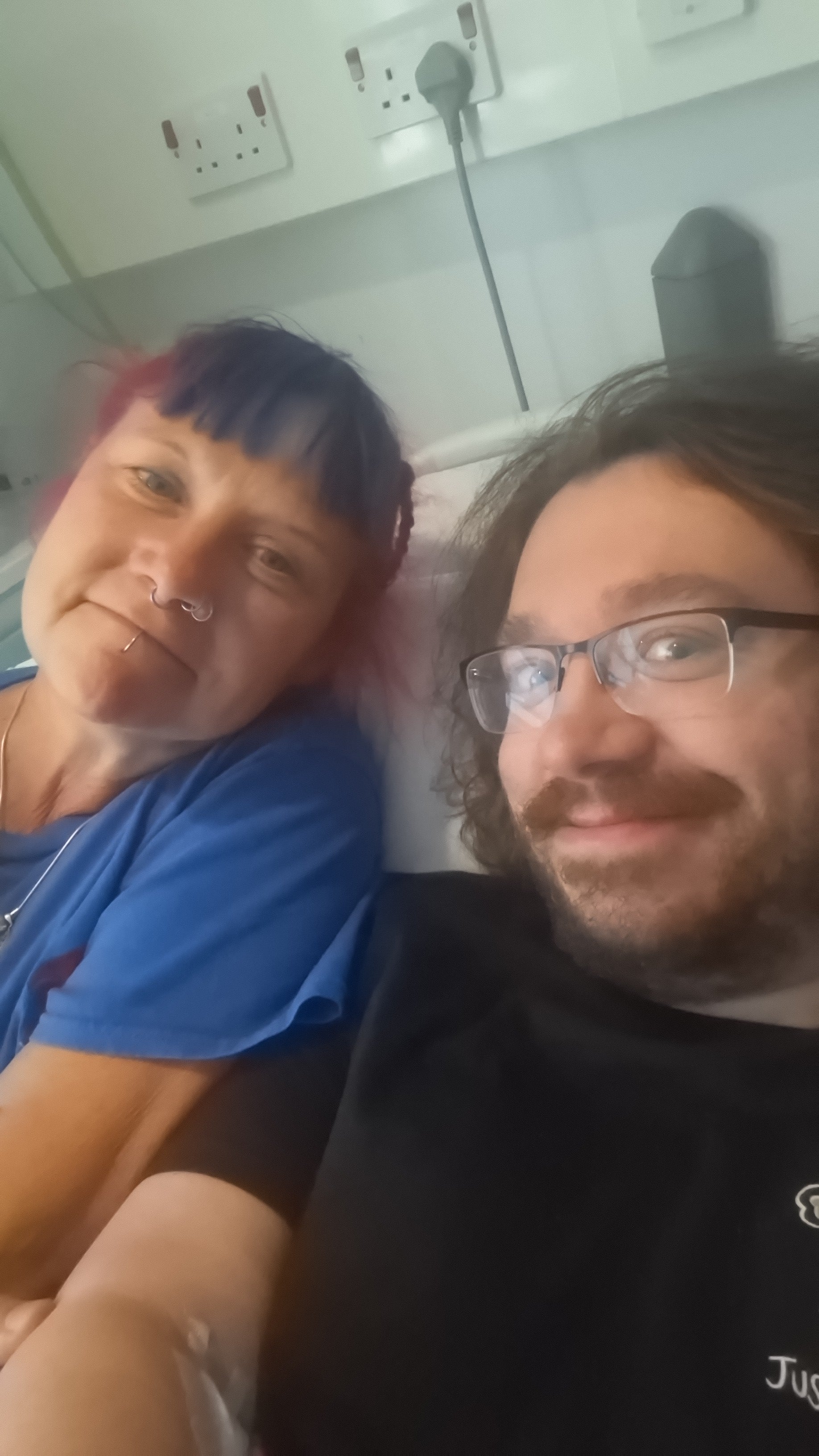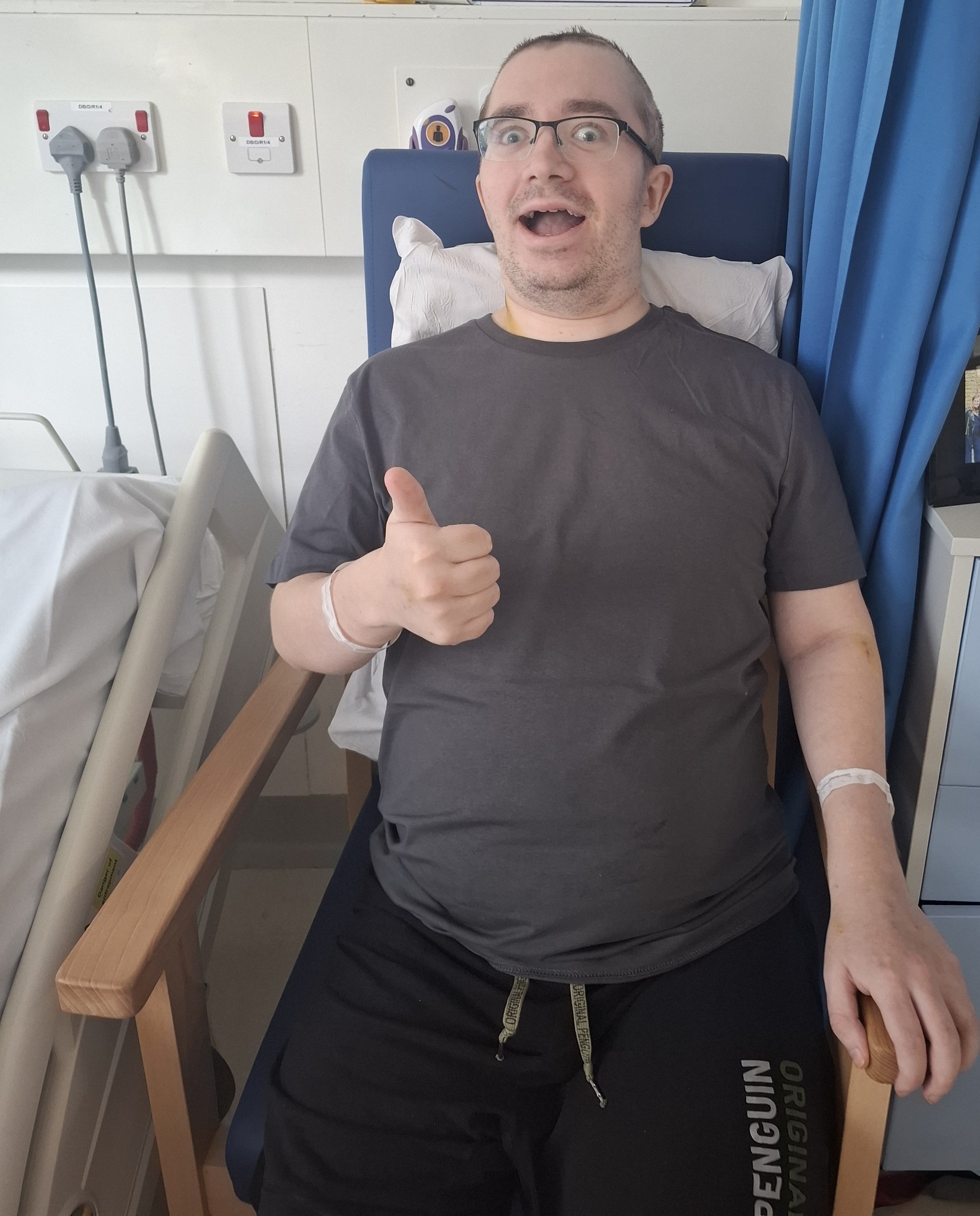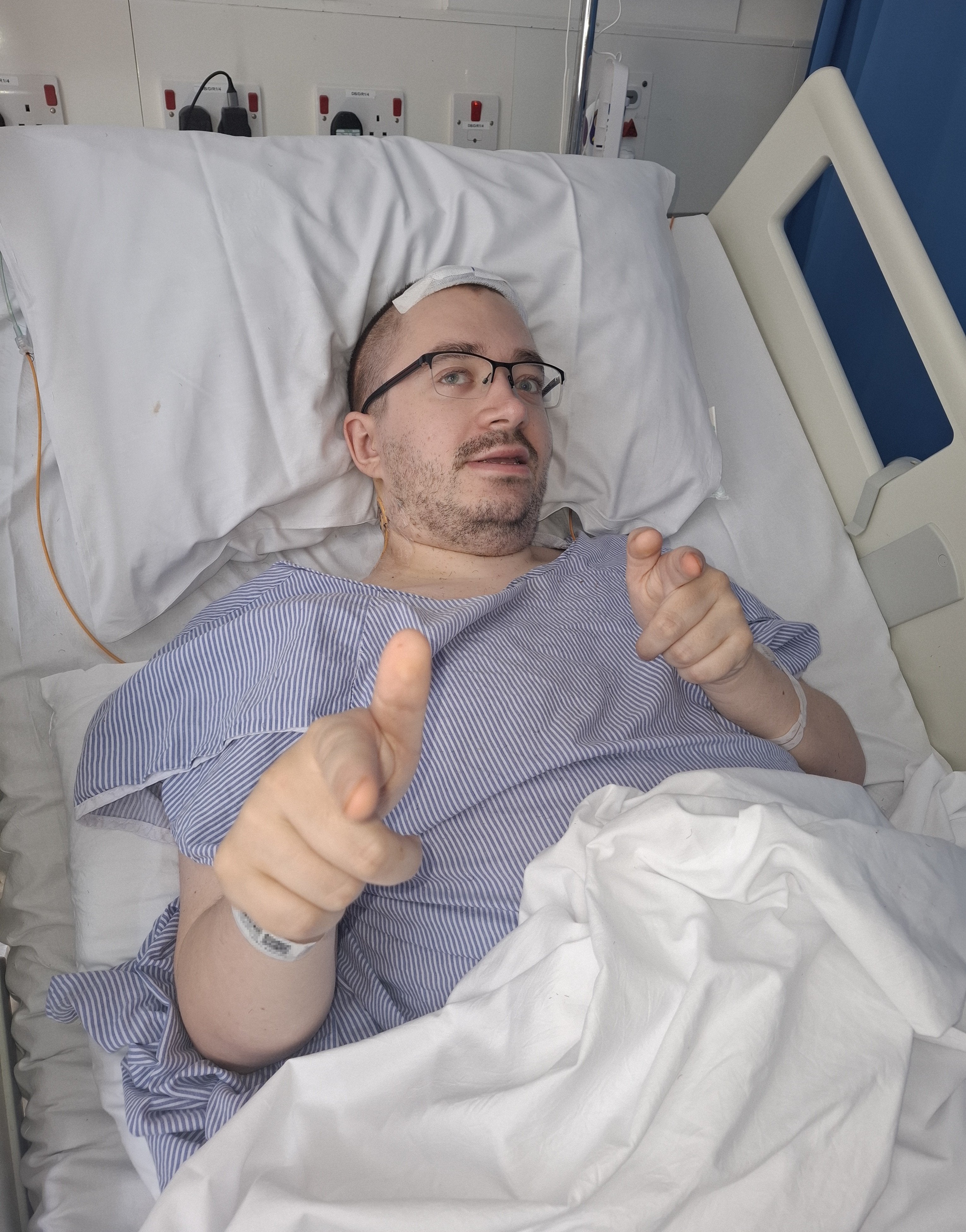The mother of a 24-year-old who has undergone ten brain surgeries following the discovery of a benign tumour has voiced uncertainty over “how much of his life” her son will regain, as he now faces memory loss and sight problems.
Rachel Wilson-Glover, 56, from Bedhampton, Hampshire, explained that her son, Flynn Brooks, began feeling unwell in July.
After two weeks of persistent headaches and blurry vision, she urged him to seek medical help.
A subsequent CT scan revealed a mass in his brain, diagnosed as a non-cancerous tumour, leading to surgery scheduled for August.
However, the initial operation was followed by a host of complications, Ms Wilson-Glover detailed.
These included a dangerous fluid build-up on Mr Brook’s brain, pain, confusion, and vomiting. The young man, who studied games programming and worked in data entry, “crashed” twice and required life support.
He then endured a further nine procedures to fit drains and shunts, aiming to rectify these issues.
Mr Brooks, who lived in his own flat in Southsea, Portsmouth, is now grappling with memory loss and sight problems as he slowly begins his recovery.

“He’s still my Flynn, he’s still my boy, he’s still got a sense of humour – he’s just got to adapt to a different way of life now,” Ms Wilson-Glover told PA Real Life.
“We don’t know if his eyesight is going to come back properly, we don’t know if his memory is going to return.
“We don’t know how much of his life he is going to get back or what he’ll need in the future – those are the scary things and that’s all unknown at the moment.
“Flynn didn’t drink, he didn’t smoke, he’s polite.
“He’s a gorgeous young man who has faced the hardest part of his life with such bravery and I’m so proud of him.”

Ms Wilson-Glover said Mr Brooks felt unwell in July this year, which he initially put down to a virus.
After he suffered a headache for two weeks, Ms Wilson-Glover said she encouraged him to seek medical help, and he went to A&E where it was thought he had a migraine.
When his symptoms did not reduce, and when his vision started to become blurry, Ms Wilson-Glover said she urged him to visit his GP.
Mr Brooks then received a referral for a CT scan on July 24 at the Queen Alexandra Hospital in Portsmouth, where a mass was discovered in his brain.
“I was at work, sitting in a meeting, when Flynn phoned me to say they had found something on his CT scan – I was in utter shock,” Ms Wilson-Glover said, adding she went straight to the hospital to be with her son.

She said the two were then transferred to University Hospital Southampton in an ambulance.
There, after having further tests and an MRI scan, it was discovered on July 26 that Mr Brooks had a non-cancerous brain tumour.
He was scheduled for surgery to have the tumour removed, but the procedure was brought forward as he was in “endless pain”.
“He was suffering so much – he came to live with me because he was so unwell at that point,” Ms Wilson-Glover said.
Ms Wilson-Glover said she and Mr Brooks were asked to return to the hospital on August 4 – his 24th birthday – and he received a craniotomy to remove the tumour on August 5.
“It was very, very scary but he took it all in his stride, he was so brave,” Ms Wilson-Glover said.
Following the operation, Ms Wilson-Glover said Mr Brooks started to experience several complications which pointed towards hydrocephalus, a build-up of fluid in the brain, as well as pain, confusion and vomiting.
To rectify the problem, Ms Wilson-Glover said Mr Brooks has undergone a further nine surgical procedures.

These included eight operations to install and replace the drains in Mr Brooks’ head after they became blocked, and one to fit two internal brain shunts – a thin tube which allows excess fluid to flow to another part of the body, usually the stomach.
“Things just kept going wrong,” Ms Wilson-Glover said.
Mr Brooks suffered with an infection on his brain, Ms Wilson-Glover said, which further added to the complications.
He also “crashed” twice where he ended up in intensive care on life support after his condition rapidly deteriorated – first on August 22 and again on September 16.
“They were the most horrendous moments of my life, every day I prayed I would get him back,” Ms Wilson-Glover said.
“He survived and pulled through both crashes, which was incredible.”

She added: “Ultimately, Flynn is still here because of the hospital, but I initially felt as though people weren’t listening when I kept saying ‘he’s not right’ and he seemed to be getting worse.
“No one expected all of these complications though and it’s very unusual, he’s a very unusual case.”
Ms Wilson-Glover said she eventually contacted University Hospital Southampton through their Call for Concern service, established in line with Martha’s Rule, to highlight her concerns around her son’s unstable condition.
Martha’s Rule is a patient safety initiative supporting the early detection of deterioration where patients, families and carers are actively encouraged to tell staff if they are worried a health condition is getting worse, according to the NHS.
They may notice small changes that could be early warning signs of deterioration before they show up in routine measurements.
If, after speaking to the care team, they remain worried and feel their concerns are not being addressed, they can call a dedicated number for a rapid review from a different team, the NHS says.
“It’s there for a reason,” Ms Wilson-Glover said.
“Flynn remained brave throughout, he never complained and he went with everything they said.
“I was his advocate because he’s such a mild-mannered, polite young man, and I’m a very strong woman.”
Ms Wilson-Glover said her son is now suffering from short-term memory loss and sight problems.

“He gets confused but he still knows a lot of things, his long-term memories are there, he knows who people are and he can identify things,” Ms Wilson-Gloverexplained.
“For his short-term memory, he’ll do something and he can’t remember what’s just happened.”
Ms Wilson-Glover said her son is “up and walking”, but she feels his vision is causing him to be “unsteady on his feet”.
“His last surgery was on October 1, so it’s still quite early and his body is still recovering,” she said.
Mr Brooks is now recovering at Queen Alexandra Hospital in Portsmouth, where he is awaiting a referral for a rehabilitation programme with the aim of improving his cognitive and motor skills.
Ms Wilson-Glover has launched a GoFundMe page to give him “a really good fresh start when it comes”, raising more than £6,500 so far.

A spokesperson for University Hospital Southampton said: “We are always sorry to hear that a patient or their family feel dissatisfied with any element of care they have received in our hospital.
“We want our patients and their relatives to feel heard and actively encourage people to raise concerns so that we can address any issues.
“We have a dedicated Patient Advice and Liaison Service (Pals) to help resolve matters.
“However, where complaints are made by, or on behalf of, an inpatient we always recommend that conversations are had directly with the medical teams involved in the first instance, to help resolve matters swiftly.
“Our trust was among the first to implement Call for Concern, incorporating Martha’s Rule – a system that enables patients and their families or carers who are worried about a patient’s condition deteriorating, to seek an urgent review from a different clinical team.
“While we never comment on individual cases in order to protect patient confidentiality, the trust is committed to working with any patient, their family or carer who has worries and concerns they feel remain unresolved.”
To find out more, visit the fundraiser for Flynn here: gofundme.com/f/help-my-recovery-for-flynn-brooks



0 Comments